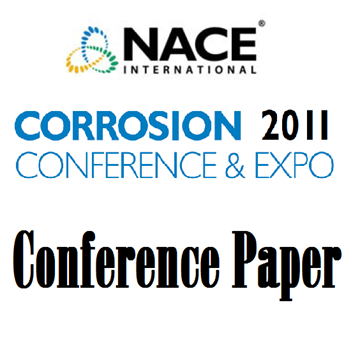Search
00649 A NON-CHEMICAL APPROACH TO OXYGEN CORROSION CONTROL IN CLOSED LOOP SYSTEMS
Also Purchased
11120 Sulfur Corrosion Due To Oxygen Ingress
Product Number:
51300-11120-SG
ISBN:
2011 11120 CP
Publication Date:
2011
$20.00
00661 ON-LINE DISSOLVED OXYGEN MONITORING IN BOILER FEEDWATER SYSTEMS
Product Number:
51300-00661-SG
ISBN:
00661 2000 CP
$20.00
02270 Corrosion Consequences of Oxygen Entry Into Oilfield Brines
Product Number:
51300-02270-SG
ISBN:
02270 2002 CP
$20.00




